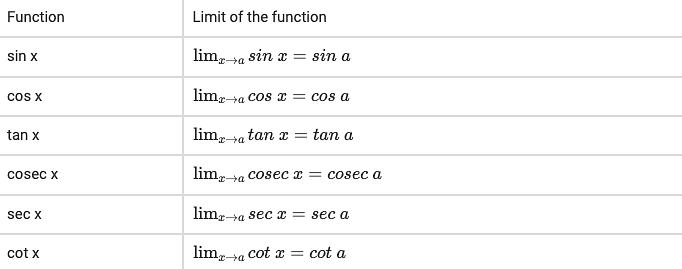Let \(cos^{-1}\frac{y}{b}\)=\(log_e (\frac{x}{n})^n\), then Ay2+By1+Cy=0 is possible : (where y2=\(\frac{d^2y}{dx^2}\), y1=\(\frac{dy}{dx}\))
- A=2, B=x2, C=n
- A=x2, B=x, C=n2
- A=x, B=2x, C=3n+1
- A=x2, B=3x, C=2n
The Correct Option is B
Solution and Explanation
Given: \(\cos^{-1}\left(\frac{y}{b}\right) = \log\left(\frac{x}{n}\right)^n = n \log\left(\frac{x}{n}\right) = n(\log x - \log n)\)
Taking cosine on both sides:
\(\frac{y}{b} = \cos(n(\log x - \log n))\)
\(y = b \cos(n(\log x - \log n))\)
Differentiating with respect to x:
\(y_1 = \frac{dy}{dx} = b \cdot (-\sin(n(\log x - \log n))) \cdot n \cdot \frac{1}{x} = -\frac{bn}{x} \sin(n(\log x - \log n))\)
\(x y_1 = -bn \sin(n(\log x - \log n))\) (1)
Differentiating again with respect to x:
\(y_2 = \frac{d^2y}{dx^2}\)
Differentiating \(x y_1 = -bn \sin(n(\log x - \log n))\)
\(x y_2 + y_1 = -bn \cdot \cos(n(\log x - \log n)) \cdot n \cdot \frac{1}{x}\)
\(x y_2 + y_1 = -\frac{bn^2}{x} \cos(n(\log x - \log n))\)
\(x^2 y_2 + x y_1 = -bn^2 \cos(n(\log x - \log n))\)
From the original equation \(y = b \cos(n(\log x - \log n))\) therefore \(bn\cos = y\):
\(x^2 y_2 + x y_1 = -n^2 y\)
\(x^2 y_2 + x y_1 + n^2 y = 0\)
Comparing this with \(Ay_2 + By_1 + Cy = 0\), we get \(A = x^2\), \(B = x\), and \(C = n^2\).
Conclusion:
The correct option is \(A = x^2, B = x, C = n^2\)
Top Questions on limits of trigonometric functions
- Find the value of the following expression: \[ \tan^2(\sec^{-1}4) + \cot(\csc^{-1}3) \]
- MHT CET - 2025
- Mathematics
- limits of trigonometric functions
- The value of \( \lim_{x \to 0} \left( \frac{\tan 11x}{\tan 5x} \right) \) is:
- GATE MN - 2025
- Engineering Mathematics
- limits of trigonometric functions
- Given a real-valued function \( f \) such that: \[ f(x) = \begin{cases} \frac{\tan^2\{x\}}{x^2 - \lfloor x \rfloor^2}, & \text{for } x > 0 \\ 1, & \text{for } x = 0 \\ \sqrt{\{x\} \cot\{x\}}, & \text{for } x < 0 \end{cases} \] Then:
- BITSAT - 2024
- Mathematics
- limits of trigonometric functions
- Evaluate the limit: \[ \lim_{\theta \to \frac{\pi}{2}} \frac{8\tan^4\theta + 4\tan^2\theta + 5}{(3 - 2\tan\theta)^4} \]
- TS EAMCET - 2024
- Mathematics
- limits of trigonometric functions
- If \( f(x) \) is defined as follows:
\[ f(x) = \begin{cases} \frac{x - \lfloor x \rfloor}{x - 2} & \text{if } x = 2 \\ \frac{|x - \lfloor x \rfloor|}{a^2 + (x - \lfloor x \rfloor)^2} & \text{if } 1 < x < 2 \\ 2a - b & \text{if } x = 1 \end{cases} \]
Then the limit \( \displaystyle \lim_{x \to 0} \frac{\sin(ax) + x \tan(bx)}{x^2} \) is:- AP EAPCET - 2023
- Mathematics
- limits of trigonometric functions
Questions Asked in WBJEE exam
- Figure shows the graph of angle of deviation \( \delta \) versus angle of incidence \( i \) for a light ray striking a prism. The prism angle is

- WBJEE - 2025
- Refraction Through A Prism
- Ruma reached the metro station and found that the escalator was not working. She walked up the stationary escalator with velocity \( v_1 \) in time \( t_1 \). On another day, if she remains stationary on the escalator moving with velocity \( v_2 \), the escalator takes her up in time \( t_2 \). The time taken by her to walk up with velocity \( v_1 \) on the moving escalator will be:
- WBJEE - 2025
- Relative Motion
- The compound(s) showing optical activity is/are
- WBJEE - 2025
- Stoichiometry and Stoichiometric Calculations
Which of the following statement(s) is/are correct about the given compound?

- WBJEE - 2025
- Organic Chemistry
- X is an extensive property and x is an intensive property of a thermodynamic system. Which of the following statement(s) is (are) correct?
- WBJEE - 2025
- Thermodynamics
Concepts Used:
Limits of Trigonometric Functions
Assume a is any number in the general domain of the corresponding trigonometric function, then we can explain the following limits.

We know that the graphs of the functions y = sin x and y = cos x detain distinct values between -1 and 1 as represented in the above figure. Thus, the function is swinging between the values, so it will be impossible for us to obtain the limit of y = sin x and y = cos x as x tends to ±∞. Hence, the limits of all six trigonometric functions when x tends to ±∞ are tabulated below:
